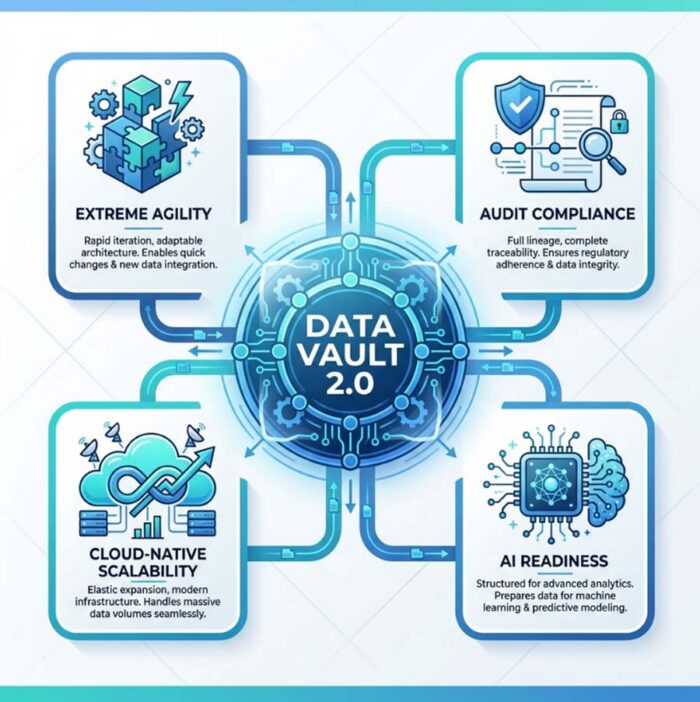Summary
Unemployment insurance modernization is more urgent than ever in today’s curious job market. As economic uncertainty looms, state labor agencies face the challenge of rising claims and strained resources. New AI tools from Google like Adjudicator Assistant, Appeals Packet Generator, and UI Mentor offer pure efficiency solutions to streamline claim adjudication, accelerate training, and strengthen service delivery. As a Premier Google Partner, Resultant helps agencies adopt these innovations to build resilient systems and better serve their communities.
[Estimated read time: 6 minutes]
How state labor agencies can prepare for economic uncertainties
The U.S. job market is currently in a state of flux, prompting questions about the future of the economy and job market. Data from the U.S. Department of Labor indicates a strong labor market, but a recent University of Michigan survey of consumers indicated that 62 percent of consumers believe that unemployment will worsen in the year ahead. This paradox has led Fed Chair Jerome Powell to call the environment “curious.”
This “curious” job market is visible in hiring trends. Many corporate employers, fearing a recession and uncertainties over tariffs, are pulling back on hiring in various fields.
- June 2025’s hiring rate dropped to 3%, lower than pandemic-impacted rates of 3.9% in February 2020 and 4.6% in November 2021 (Wall Street Journal).
- Reports suggest that younger workers are strugglingto break into the job market.
- Job seekers spend more than six months to find new roles.
However, while companies are showing a reluctance to hire, they also don’t seem to be laying off many workers. Layoffs accounted for just one percent of total employment in June, and although initial unemployment claims have risen over the past year, the overall rate remains low.
A likely contributor to that rate is “labor hoarding,” where businesses hold onto employees they might not currently need out of fear of being caught short-staffed when the economy improves. But this dynamic could create a domino effect: labor hoarding may reduce hiring and weaken consumer confidence, so even a modest rise in layoffs could cause disruption.
Digital transformation of UI tools: Where power meets promise
For CIOs, agency directors, and unemployment leaders, the time to prepare is now. When a downturn hits, unemployment claims surge, putting immense pressure on state labor agencies. Waiting until the next recession arrives is too late. Staff and systems will be overwhelmed, performance metrics will decline, and customer service will suffer.
In past crises, many states struggled to process high volumes of claims, with some seeing timely processing rates drop below 40 percent due to outdated technology and overwhelming backlogs.
Today, there are innovative solutions that didn’t exist during pandemic’s record-high unemployment claims.
Google has developed AI Assist agents that are pure efficiency tools, streamlining claim adjudication and accelerating training for new adjudicators.
Google Adjudicator Assistant
Adjudicators often face heavy backlogs and complex fact-finding that require multiple exchanges with claimants and employers. Adjudicator Assistant helps by:
- Reducing time to decision: Automates gathering of relevant facts, identifying discrepancies, and surfacing case law.
- Dynamic fact-finding: Uses GenAI to pose real-time, tailored questions to each party based on their unique circumstances.
- Clearer summaries: Collects, interprets, and presents information as a timeline with key issues and potential discrepancies highlighted.
- Human in control: The adjudicator makes the final determination, but the tool streamlines their work for faster, more consistent outcomes.
- Better results: Improves performance metrics and customer service by easing the bottleneck of backlogged claims.
Google Appeals Packet Generator and Decision Letter
A companion tool supports the appeals process by automating key steps:
- Appeals Packet Generator: Builds complete appeals documents and summarizes the issues being appealed.
- Decision Letter: Drafts letters that summarize relevant facts, timelines, and laws to support Appeals Referees in making benefit decisions.
Google UI Mentor
Training new adjudicators has historically been slow and inefficient. During the pandemic, for example, California’s Employment Development Department (EDD) hired thousands of staff, but legacy systems were so complex that workers relied on sticky notes and macros just to navigate them, and efficiency actually decreased (Recoding America).
UI Mentor addresses this challenge by:
- Accelerating onboarding: Serves as an AI-powered knowledge base for new adjudicators.
- Reducing training burden: Helps staff ramp up quickly without pulling experienced adjudicators away from claims processing.
- Improving consistency: Provides standardized guidance so new hires can make decisions with greater accuracy.
Conclusion: Strengthen systems before the next downturn
State labor agencies face a pivotal moment. Today’s low unemployment and “curious” job market offer a rare opportunity to prepare for future disruption. History shows that when unemployment surges, agencies struggle with overwhelming claim volumes, strained resources, and delayed services that directly affect communities. Waiting until the wave hits is too late. By strengthening infrastructure, modernizing processes, and investing in AI-powered tools now, agencies can empower their workforce to weather the next downturn and continue serving effectively when challenges arrive.
See Google’s AI tools in action.
As a Premier Google Partner recognized with national awards, Resultant helps agencies modernize systems with efficiency and resiliency.
About the author

Michael Schmierer
Director, Workforce and Economic Development Practice @ Resultant
Resultant’s Workforce and Economic Development Practice helps clients leverage data and technology to improve citize...




